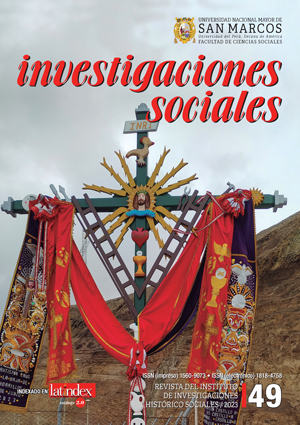Mexico and the united states during the presidential crisis in nicaragua, january-november 1926
DOI:
https://doi.org/10.15381/is.n49.25442Keywords:
Mexico, United States, Nicaragua, intervention, crisisAbstract
The crisis of the presidential succession in Nicaragua between 1926 and 1927 was an opportunity for the revolutionary regime of Mexico led by Plutarco Elías Calles to recover the influence of the country in Central America. This action particularly involved a political, diplomatic and even military confrontation with the United States of America, a country with which it had to compete for the recognition of the constitutional legitimacy of the vice-presidency of the liberal Juan B. Sacasa, overthrown by the coup d’état of General Emiliano Chamorro. We analyze the political motivations of the Calles government and the diplomatic and military capacity of his government to intervene in this conflict of an international nature but which ventilated, at the same time, the tensions that the Mexican country had against the economic and political interests of the United States.
Downloads
Published
Issue
Section
License
Copyright (c) 2023 Mario Meza Bazán

This work is licensed under a Creative Commons Attribution 4.0 International License.
AUTHORS RETAIN THEIR RIGHTS:
a. Authors retain their trade mark rights and patent, and also on any process or procedure described in the article.
b. Authors retain their right to share, copy, distribute, perform and publicly communicate their article (eg, to place their article in an institutional repository or publish it in a book), with an acknowledgment of its initial publication in Investigaciones Sociales.
c. Authors retain theirs right to make a subsequent publication of their work, to use the article or any part thereof (eg a compilation of his papers, lecture notes, thesis, or a book), always indicating the source of publication (the originator of the work, journal, volume, number and date).













